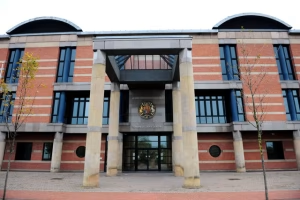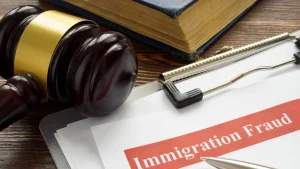Identifying a gap in the market, Pinsent Masons created a dedicated forensic investigative capability, offering a unique multi-disciplinary offering. This drives significant efficiencies and collaboration, enabling Pinsent Masons to conduct internal investigations that are efficient, proportionate, reliable and, where appropriate, privileged.
Below we discuss the forensic accountant’s role and how Pinsent Masons has brought this to the forefront of its multi-disciplinary delivery to clients.
Who are and what does the Forensic Accounting Service ("FAS") do at Pinsent Masons?
“Forensic” in this context means suitable for use in Court, such that forensic accountants must comply with Court standards and may be appointed to provide expert evidence at hearings.
The role of a forensic accountant can vary and is often considered to be the most impactful aspect of the accounting profession. A forensic accountant is an "investigator" focusing on the detailed financial aspects of investigations into fraud, financial irregularities and disputes. In essence, forensic accountants apply their accounting knowledge and experience to legal issues.
There are two main aspects of the work of forensic accountants – Litigation Support and Investigations albeit, they are not mutually exclusive as components regularly overlap throughout client matters.
For Litigation Support, forensic accountants are engaged to advise on the financial aspects of engagements that result from actual or anticipated disputes or litigation. Forensic accountants use their accounting, auditing and investigative skills to determine the financial impact of events, including quantifying damages sustained by parties involved in legal disputes.
“Forensic” in this context means suitable for use in Court, such that forensic accountants must comply with Court standards and may be appointed to provide expert evidence at hearings. Forensic accountants also assist in resolving disputes even before they reach the courtroom.
For Investigations, forensic accountants are engaged to investigate whether criminal matters such as fraud, bribery, theft or misrepresentation of financial data have occurred and to assist with recovering proceeds of crime. Forensic accountants are also engaged at Pinsent Masons in civil investigations and matters, including asset tracing and recovery of funds.
Forensic accountants also have an important role to play in compliance through risk management and monitoring programmes. They assess accounting systems, assisting in detection and prevention as well as engaging in subsequent remediation.
The nature of the work FAS has undertaken for litigation matters has evolved considerably since our team was first established. We now see an increasing proportion of multi-jurisdictional disputes and international arbitration matters and expect that trend to continue. In response to changes in the market and clients' requirements we continue to further apply innovation to our delivery.
The extent of our in-house forensic accounting team's involvement in matters depends on the client's circumstance and the nature of the dispute.
So when should businesses consider a forensic accountant?
Businesses should consider using forensic accountants in addressing relevant issues that are on the Board's agenda, including: risk management; resolving costly and business distracting disputes; investigating issues of fraud and financial irregularities; as well as responding to regulatory enquiries and investigations.
FAS works with lawyers from Pinsent Masons' leading litigation practice, advising clients on the financial aspects of disputes. We advise claimants and defendants or respondents in a wide range of contentious matters within the UK and globally in connection with dispute resolution forums, High Court proceedings and international arbitrations.
The extent of our in-house forensic accounting team's involvement in matters depends on the client's circumstance and the nature of the dispute. FAS’s involvement is at all stages of a matter from the outset by providing initial advice on merits and potential recoveries, to supporting the legal team at hearings.
Providing greater support and insight around expert determination processes.
Advising clients on quantum will range from case to case and is tailored to the client's particular needs and circumstances and the stage of the dispute. In some cases, we simply advise on the quantum principles and best ways to present the case, or work with the client to prepare detailed quantum calculations.
FAS is regularly involved in helping clients resolve disputes through negotiations and mediations. Advice to in-house counsel, Boards and key members of the business handling disputes has resulted in several successes for our clients. These include:
- Cases where the value of claims and settlements have exceeded expectations;
- Claims for breach of financial warranties have been defended or successfully proven in our client's favour;
- Resolution of matters in a timely and cost-effective manner by demonstrating robust claims or challenging and reducing the level of claims brought by opposing parties; and
Providing greater support and insight around expert determination processes. A key element of advising clients on dispute resolution is the use of decision tree visualization tools. These in-house tools, enabled by FAS, allow clients to visualise the benefits and impacts of the different options available to them at key decision points. The decision trees show details of costs, damages awards, cost recoveries, timescales, potential risks and other commercial considerations and help our clients and lawyers work together to determine the overall strategy. We also find that decision tree visualization is a particularly powerful tool when used for mediation preparation, helping clients understand what a reasonable settlement value might be and as part of the overall negotiation strategy.
FAS’ forensic intelligence offering enables Pinsent Masons to obtain intelligence and to conduct integrity risk assessments in relation to:
(i) third-party suppliers and agents;
(ii) investors and other parties involved in transactions to assess the activities, reputation and financial health of prospective business partners;
(iii) the parties connected to the dispute including the other party, connected companies, witnesses and experts, and;
(iv) regulatory, sanctions, Anti-Money Laundering (“AML”) and Politically Exposed Person (“PEP”) review.
Whether we are supporting litigation or an investigative matter we analyse the underlying financial data to quantify the resulting impacts.
How does FAS support Pinsent Masons' multi-disciplinary delivery strategy?
Whatever the extent of our advice, our first step is to work closely with our lawyers and the client team to establish the potential consequences from a financial perspective arising from the legal issues identified (e.g. early termination of a contract, breach of contract, business interruption). We draw on relevant sector expertise from our colleagues across the firm to enhance our understanding of the client's business and operations.
Whether we are supporting litigation or an investigative matter we analyse the underlying financial data to quantify the resulting impacts. For example, when assessing loss of profits claims we assess the level of lost revenue and the associated costs that have been avoided and compare the profits that we claim would have been achieved, to ensure that losses claimed are robust and will withstand further scrutiny. We present the data in a format that is most applicable for the nature of the case, the stage in the matter and the recipients of the information.
Matters may start out as advice in relation to a dispute which turns into a wider investigation matter.
What signs stick out that may signal fraud? What should businesses be mindful of?
Potential signs of fraud include:
- Poor management reporting including incomplete information, failure to close out accounts and report on a timely basis, unreconciled suspense accounts, unexplained balances in accounts and supporting journal entries;
- Reported results not in line with expectations and questionable and/or unsupported explanations;
- onboarding of and payments to third parties (agents, contractors, suppliers, etc.) with no industry background and/or connections to foreign officials; and
- Evidence of IT and finance controls being overridden or avoided.
Matters may start out as advice in relation to a dispute which turns into a wider investigation matter. For example, we are regularly involved in post acquisition cases where the parties disagree over working capital values included in completion accounts, or where an expected earn-out has not materialized. In these cases, we are instructed to establish and investigate the cause and underlying support or rationale. Do the completion accounts or earn-out accounts comply with the provisions set out in the sale and purchase agreement for their preparation? Is the failure to achieve an earn-out a result of a breach of a financial warranty as a result of non-compliant or misrepresentation of accounting or reporting obligations? In such cases, we then support clients in the expert determination phase and potentially assist them in bringing or defending claims for breach of financial warranties. Or, is the failure to achieve targets or an earn-out a result of fraudulent reporting? In this case, we then assemble teams to deal with the issue which draw on Pinsent Masons’ relevant accounting and corporate crime expertise.
Reporting failures that have previously gone undetected or have been overridden may also put into question the capabilities and integrity of employees and management involved.
Your multi-disciplinary offering enables you to provide a flexible solution to the client's issue which typically evolves over the course of the matter. When tracing potential fraudulent activity, what issues may arise?
Generally, when a forensic investigation is conducted it will initially focus on areas of the business where issues were first identified. As the investigation unfolds this will highlight failures in the reporting and control environment that have allowed the issues to occur, and point to other areas of the business that may be exposed to similar risks.
In response, a company will be required to critically assess its control and reporting environment and to further strengthen them in response to the failures identified, as well as assessing the ability to meet the future needs of a growing business. As such, the company and its advisers will need to identify and mitigate the root causes of the issues so that any likelihood of recurrence is significantly reduced and any other areas of weakness identified through the investigation are appropriately remediated.
Reporting failures that have previously gone undetected or have been overridden may also put into question the capabilities and integrity of employees and management involved. Companies at this point need to be advised on and consider if reporting was deliberately withheld or falsified or if any weaknesses have been deliberately exploited, and potentially for what benefit (personal). Often it is found that the issues extend beyond the company itself and there has been third-party involvement and/or awareness.
Typically, external parties, including independent auditors, banks and regulators, will require to be kept informed of progress, findings and actions that are being undertaken by the company to help them better understand the events, impact and results of the investigation. They will require to be satisfied that along with an independent investigation being reasonable and proportionate, that appropriate measures are being undertaken by the company and its management in response to it.
Key to further strengthening a business and benefiting from the lessons learned in an investigation is training and awareness by reaffirming at both an individual and group level what the expectations are within the business.
FAS can help address these issues so that a thorough and complete investigation is conducted uncovering root causes so that our client's business is able to minimize the disruption and develop a comprehensive remediation plan to address not only the business concerns at hand, but also public and regulatory scrutiny and oversight.
How do you overcome these issues?
Key to further strengthening a business and benefiting from the lessons learned in an investigation is training and awareness by reaffirming at both an individual and group level what the expectations are within the business. This will allow the business to better protect itself from further recurrences and enable employees to better detect and respond to events in the future. This training should not be limited to the business itself but also to third parties (agents, distributors, resellers, suppliers, subcontractors, etc.) so that all parties that have an impact and support the business are aware of the policies and procedures they are required to operate and adhere to.
Data analytics and monitoring will allow companies to benefit from prior investigations and apply data analytics proactively to monitor operations, flagging suspect transactions early on to prevent a further escalation of issues.
Forensic Intelligence can also assist with the management and review of third parties so that they are appropriately vetted, prior to onboarding resulting in the company having a firm understanding of its third parties and their operations and ensuring that the company isn't being exposed to unnecessary or unknown risk.
Many regulatory breaches now have the potential to attract fines in the millions of pounds (as well as substantial follow on compensation claims) and so, robust, proactive and pragmatic risk management systems and processes are essential.
Considering related legislation, such as the Bribery Act, are there any developments which are on the horizon which will impact clients?
Over recent years the international focus on Fraud and Corruption has intensified. Companies face unprecedented levels of regulatory scrutiny from authorities globally. Companies and their Boards and management increasingly face the threat of major financial and reputational damage not just for their own conduct, but for that of their suppliers, agents and third-party providers. This is giving rise to more investigations, with the challenge being how to approach these matters more rigorously and efficiently.
Regulatory compliance is a fact of life for all corporates – anti-bribery, competition, data protection, environmental, health & safety, insurance, modern slavery and failing to prevent tax evasion. Many regulatory breaches now have the potential to attract fines in the millions of pounds (as well as substantial follow on compensation claims) and so, robust, proactive and pragmatic risk management systems and processes are essential.
We also work closely with our highly experienced Civil Fraud & Asset Recovery colleagues to provide comprehensive, joined-up advice as to the civil and criminal implications of fraud.
Keeping pace with today's businesses must be a challenge: what innovative tools are you using?
Demonstrating clear symmetry between lawyers and accountants, remaining cognizant of the specific skill sets required and with a truly innovative strategy in place, Pinsent Masons has successfully invested in some of the market's best accounting professionals.
At Pinsent Masons, we take great pride in the work we do with our clients to think differently. Innovation sits at the heart of our strategy. For us, it’s about more than finding ways to make an old model fit a new world. Innovation is about fundamentally changing how high-quality legal advice is formulated and excellent service is delivered. We are partnering with our clients to lead through innovation, rather than be disrupted by it.
The FAS team's mixed skillset and expertise enables it to apply innovative technologies , such as data analytics, to developing clients' risk management, compliance and monitoring programmes. Through combining this expertise and capability with professional experience and sector knowledge, Pinsent Masons is able to present an enhanced view of the business and market, delivering Board level insights for better informed strategic decisions.
The FAS team, through its Forensic Intelligence tools, provides innovative delivery around identification and remediation of Anti Money Laundering/Sanctions/Watch lists issues, including Politically Exposed Persons, asset tracing and complex corporate and ownership structures, providing clients with greater transparency and insights in identifying and addressing key fraud and risk related issues.
We are innovative in how we deliver multi-disciplinary advice, working with our outstanding litigation teams to deliver successful results in complex litigation matters. We regularly use decision tree visualization tools to design meaningful, "costed" strategic options to our clients, nuanced to suit our client, whether they are among Europe's 400 fastest growing companies, as surveyed in Pinsent Masons' exclusive recent 'Pacesetters' report, or are a significant corporate with a developed in-house legal function.
Demonstrating clear symmetry between lawyers and accountants, remaining cognizant of the specific skill sets required and with a truly innovative strategy in place, Pinsent Masons has successfully invested in some of the market's best accounting professionals.
The national Forensic Accounting Team remains on course to double the size of the practice by close of 2020.
Chris Richardson: +44 20 7418 8078 M: +44 7833 234 835 / Chris.Richardson@pinsentmasons.com
Hayley Boxall: D: +44 113 225 5466 M: +44 7917 594 792 / Hayley.Boxall@pinsentmasons.com
Chris Richardson, Partner ("non-lawyer") Forensic Accountant, leads the Forensic Accounting Service ("FAS") team at Pinsent Masons, with over 20 years of professional accounting experience in responding to high profile, mission critical corporate events across financial and transactional reporting, forensic accounting, investigations and Anti-Bribery & Corruption.
Chris' innovation through forensic data and technology provides Pinsent Masons' clients with greater transparency and insights in identifying and addressing complex fraud and risk related issues.
Chris advises corporate boards, senior management and counsel through the delivery of holistic solutions and remediation to minimize downtime and resulting impacts on operations, reputation and shareholder value.
Hayley Boxall, Director Forensic Accountant, leads our in-house forensic accounting team's offering for litigation and contentious matters. Hayley is a Fellow of the ICAEW and has specialised in forensic accounting since 2000, first at Big 4 Firms before joining Pinsent Masons in 2006.
Hayley has a wide range of experience of dispute resolution, acting for both claimants and defendants in contentious matters; including breach of contract disputes, post-acquisition disputes, breach of warranty disputes, loss of profits claims, business interruption claims, shareholder disputes, family disputes and professional negligence claims. Hayley has acted for clients in sectors including IT, engineering, manufacturing, facility services, pharmaceutical, professional services, energy, infrastructure and real estate.
Hayley also provides pre-completion advice in respect of the drafting of completion accounts provisions, earn-out mechanisms and financial warranties within sale and purchase agreements. Hayley is experienced in the preparation of share valuations in both contentious and non-contentious situations and advises clients on share valuations for tax purposes.




















